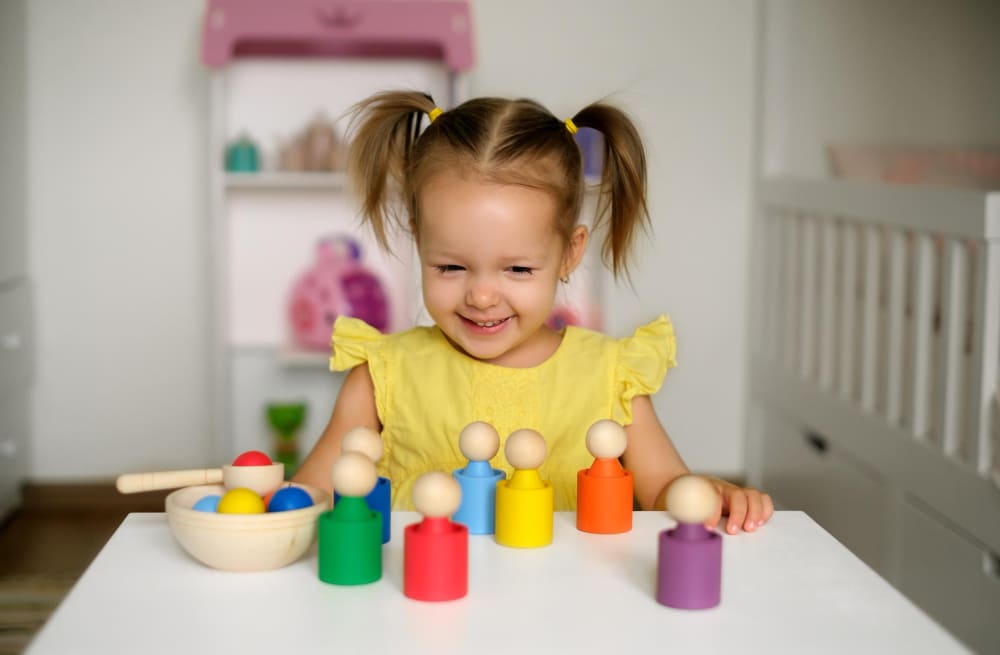Parenting can be stressful at times. Your child is developing at a faster rate than you imagine. Last week, your child might have struggled to stand on his own but this week, he is already propped up against the wall! As a parent, you might be constantly struggling to keep up with your child’s rapid development. Here are a few pointers to help you understand that little bundle of joy better
Understand the Developmental Stages of Your Child:
Take some time to understand the developmental stages of your baby. Being in the know can save you from anxiety and concern. Also, it prepares you for the next big milestone in your child’s life. For example, if your child has now started communicating in words, you should be ready to listen to him/her talk endlessly in about a few months. You can accelerate his language development by conversing with him more often than you did. A child understands more than he can convey through words. So keep talking to him even if you sometimes wonder if he understands a word of what you’re saying.
Children learn fast and are curious to explore their world. You, as a parent could expose the child to the right learning material in accordance with child’s developmental stage. Understand that every child develops at his/her own pace – enjoy these moments.
There’s no such thing as too much patience!
Patience is a virtue that you should imbibe as a parent. Your child might lag a few months behind in taking his first step. Remember, every child develops at his own pace and don’t panic. Give your child time, see if he is showing the signs that he is ready for the next stage and wait patiently. Never push your child to move to the next stage. In case, your child lags a milestone by 3-6 months and has shown no sign of readiness for the next level, seek medical opinion.
You should exhibit patience not just in giving your child his time to develop steadily but also in handling him. Wouldn’t you expect your spouse to show patience while you are struggling to learn driving or cooking? The world is a new place for your child and he is making every effort to understand and learn how the world operates. Be patient with his attempts and failures. Encourage his every effort at learning.
Stay Aware that your child knows more that you can imagine!
A child is incredibly curious by the age of 18-24 months. Allow him to explore. It’s good not to be overcautious and restrict him from his natural inclination to explore. If you are concerned about his safety then, here are two things you could do:
Make sure the environment at home is safe and conducive for the child’s learning by putting away the dangerous items beyond his reach.
Explain to the child, the consequences of an action that you believe are unsafe for him when he attempts to do it, rather than scaring him with a “No!”
Never do or say something in front of your child just because you believe that the child will not understand. Children can comprehend their surrounding and situation very well. A child can instinctively understand if the environment is positive or negative. A child can even tell the difference between a truth and lie. Hence, don’t discuss things that send out negative emotional vibes such as fear and hatred.
Be a Role Model:
A child has a natural tendency to learn from his environment. The modeling of good and bad behavior starts at home. By the age of 5, a child’s self-concept is established. Self-concept refers to the perception of one’s own abilities and attributes. In order to provide your child with a healthy self-concept, the early experiences for the child have to be positive and consistent.
You as an adult should indulge in such behavior that you would expect from your child. Your child will be what you are. There is no legitimacy in expecting your child to speak softly when you speak harshly to the members of your family.
Grow with your child. Unlearn a few old, undesirable behaviors of yours for your child. It is a good time to kick those old habits that you have been trying hard to do away with. A child at home makes you a better person.
Beyond setting a good example, when it comes to disciplining your child, be consistent with your rules and expectations. If you don’t allow your child to watch television while eating today then, don’t relax the rule another day. Children are smart; whether they use their intelligence for the right or wrong is in your hands. If they see inconsistency in your demands then, they will use their smartness to manipulate outcomes out of you.
Your Child Is Unique:
The last but most important aspect of stress-free parenting is to understand that “Every child is unique and so is yours”. It is good to have a healthy discussion with other parents but never compare your child with another. Take home the good techniques of parenting from other parents but never the achievements of their children. All techniques might not apply to your child and hence it is important to customize the tips that you get from other parents to suit your child’s nature.
Finally, never be harsh on yourself. You are unique as a parent too. So, don’t compare your parenting to that of your friends. Remember, you are doing the best you can as a parent and your child loves you unconditionally!
